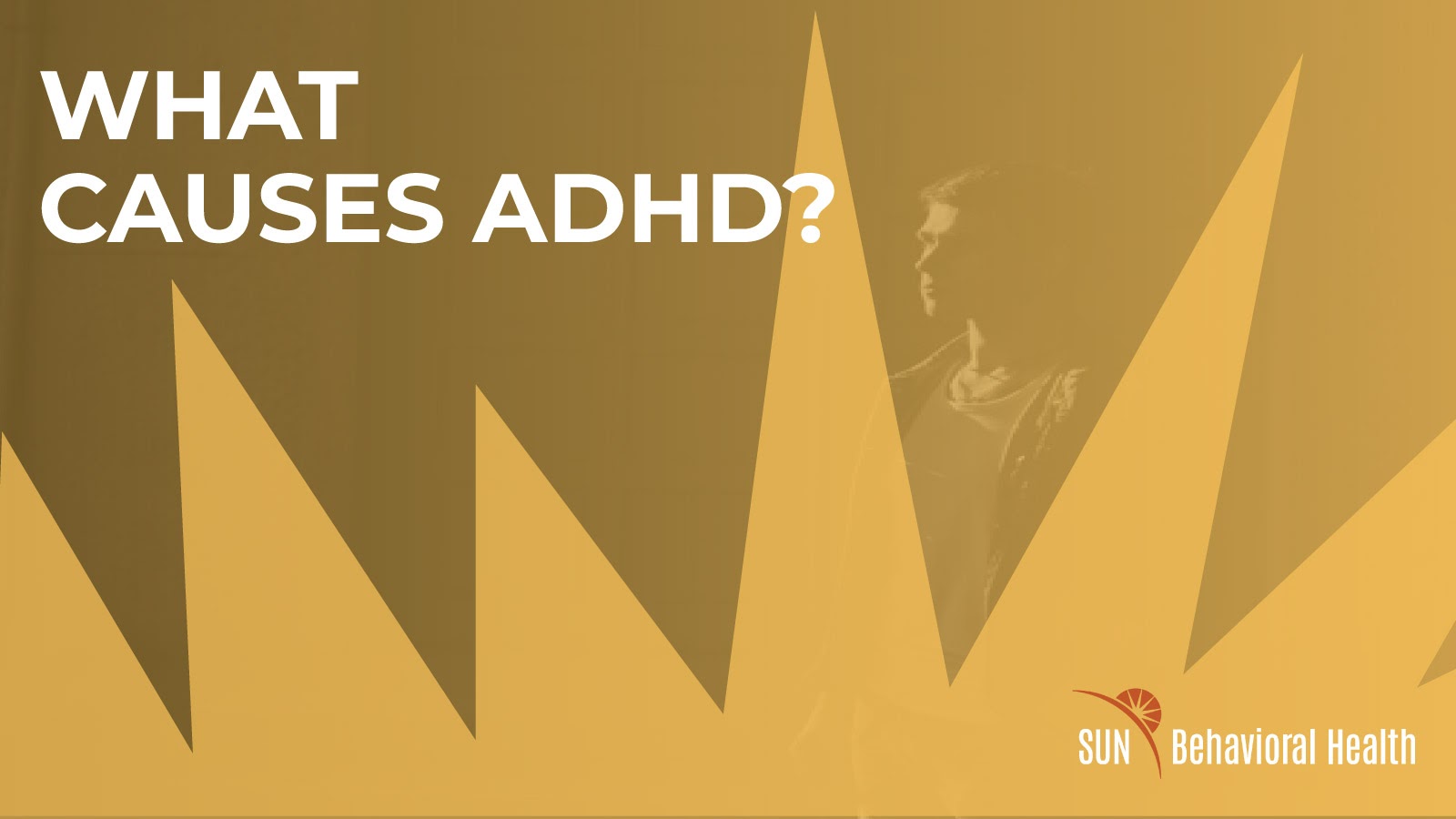There are many myths about what causes attention-deficit/hyperactivity disorder (ADHD). That's why treatment center Sun Behavioral Houston recently published a blog post that provides accurate information about the causes of ADHD, its symptoms, and available forms of treatment for children and adolescents.
ADHD is a neurodevelopmental disorder, meaning it's associated with issues in brain development, the post explains. There are still many unknowns regarding the causes of ADHD, but scientific research points to genetics being a possible cause. Studies have found "high heritability" in twins and "moderate broad heritability" in non-twin children, adolescents, and adults.
Sugar and caffeine, though not causes, can contribute to the symptoms of ADHD. The center points out that the same can be said for watching too much television, and misguided parenting in tense situations. Other possible external contributors include having a noisy or chaotic home, and even economic status.

The CDC said researchers continue to study other possible causes of ADHD, including brain injury, exposure to environmental toxins during pregnancy or at a young age, alcohol and tobacco use during pregnancy, and so on, even low birth weight or premature birth. The root cause, however, is the neurological development factor.
The post says there is much reason for hope when a child does meet the criteria for ADHD. The school can provide additional resources, including an educational aide assigned to help minimize distraction and help the child to focus. In addition, the student is eligible for special instruction that will help them handle their ADHD behavioral tendencies as they grow older, and they may be given special arrangements for tests (including extra time allowances and a quiet environment). Learn more here: What Causes ADHD.
It is often a parent or other caregiver who first notices concerning behavior in young children, behavior that is often brushed off as most believe children are supposed to be full of energy. Others hesitate to recognize the signs of ADHD. If it's not hurting anyone, people also tend to believe that it's not worth pursuing further.
Many children often get noted in school for concerning behavior and a lack of focus. These incidents affect the child’s school performance and may disturb the rest of the class. Worried parents often leave school meetings with the teacher urging them to have their child tested for ADHD.
The CDC offers a list of main symptoms, but they're part of a longer list of specific areas in which a child must meet a minimum of behaviors to meet the diagnostic criteria for ADHD. Some of these symptoms are daydreaming a lot, forgetting or misplacing things often, squirming and fidgeting, talking too much, making careless mistakes, and difficulties with impulse control. Children may find it difficult to take turns and to get along with others, too. It's possible that ADHD occurring in childhood may continue into adulthood.
Psychologists, psychiatrists, and primary care doctors are all qualified to diagnose ADHD with input from parents, teachers, and other caregivers who look after the child regularly and can provide valuable input regarding behavior. In addition, they will look to meet at least six of nine indicators of inattention and six of nine indicators of hyperactivity and impulsivity.
It's also been noted that boys are typically three times as likely to be diagnosed with ADHD than girls, but that is most likely related to boys’ symptoms being more external whereas girls’ symptoms are more internal and less obvious. In short, they may daydream and have trouble focusing but may not be as likely to cause the disruptions a boy might. Both can still suffer long-term issues with schoolwork and meeting deadlines as the disorder affects their daily life. Criteria also vary between teenagers and adults.
The SUN Behavioral Houston web page on ADHD provides more detailed information, including observations of leading medical professionals and guidance on how to seek help for a child with ADHD.
To learn more about ADHD or the services offered by SUN Behavioral Houston, visit the center’s official website, or call or email them.
At SUN Behavioral Texas, we partner with hospitals, doctors, schools, and social service agencies to solve the unmet behavioral health needs in neighborhoods across the Lone Star State. We take providing mental health services to the next level.
7601 Fannin Street
Houston, TX 77054
June 06, 2024 – Texas Rehab on Cocaine Withdrawal in New Blog
March 14, 2024 – Local Rehab Explores Bipolar Disorder and Blame
December 15, 2023 – SUN Houston Investigates Alcoholism Denial
November 13, 2023 – Local Facility Investigates Bipolar and Narcissism
September 26, 2023 – Local Rehab Investigates Alcohol Withdrawals
July 14, 2023 – SUN Houston Reports Dangers of Alcohol Poisoning
June 30, 2023 – Bipolar Psychosis is Not Talked About Enough, States SUN Behavioral Health Houston
April 26, 2023 – SUN Behavioral Houston Explains the Difference Between Bipolar and Schizophrenia
March 16, 2023 – SUN Behavioral Houston Explains: What is a High Functioning Alcoholic?
November 25, 2022 – SUN Behavioral Houston Upgrades Technology to Help More People Access Mental Health Treatment